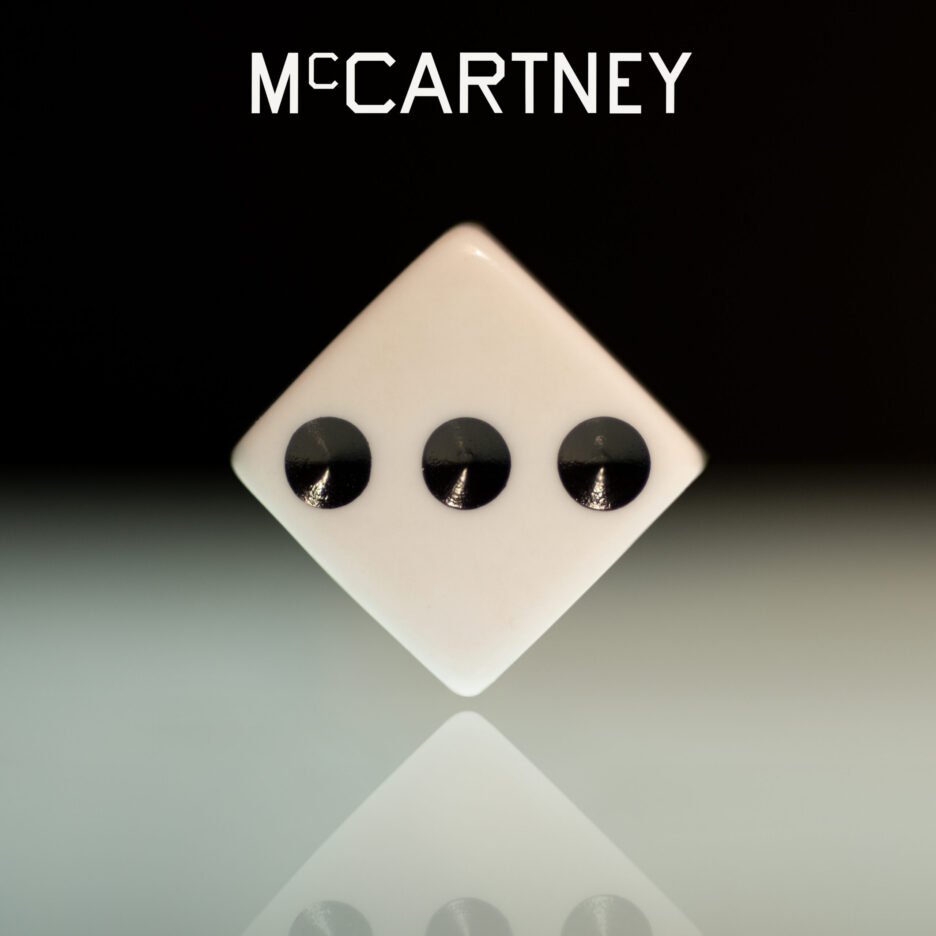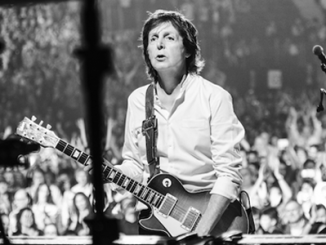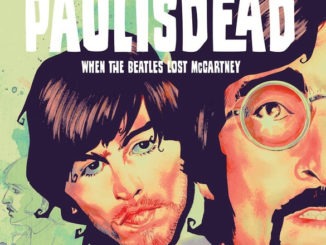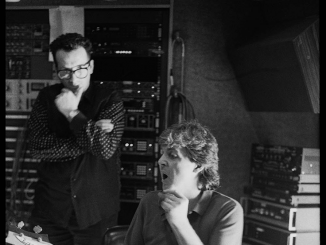The Covid-19 pandemic of 2020 meant that many of us had to spend a lot of time indoors. Definitely a bummer in most cases, but one of the few silver linings is that musical geniuses had to spend a lot of time indoors too. Because of this, Paul McCartney had plenty of time during lockdown to add another chapter to his remarkable career in music, and even complete a fascinating trilogy with the extraordinary McCartney III.
As if he hasn’t done enough to innovate over the decades, the new LP finds the former Beatle still hungry to chase new sounds and continuing to challenge himself. With his new material very much showcasing various sides of Paul, it serves as a reminder of the range and dynamic of this advanced, multi-faceted composer.
The Beatles made him a household name and the songs he wrote during his time with the group gave him a career for life. He could have easily spent the following 50 years doing nothing but bashing out hits from the 60s to audiences who would’ve lapped it up. But McCartney doesn’t just make music for Beatles fans. He doesn’t make music with one particular audience in mind, and he certainly doesn’t make music for the critics. Giving the music a fair hearing suggests that McCartney has never lost his extraordinary songwriting abilities. He chooses to experiment, have fun and create music with an entirely subjective, at times questionable quality.
McCartney has always written songs primarily for himself; it just so happened that different people all over the world enjoyed many of them too. So much so, that those songs forever changed the world, and in the process, Macca became the most successful songwriter of all time. Those who describe him as a mere writer of sentimental ballads have a very reductive way of thinking. What they really mean is that among other things, he has written many of the greatest and most memorable love songs of all time. But that doesn’t mean he can’t pen a ‘Helter Skelter’, ‘Jet’ or ‘Temporary Secretary’.
Glorious contradictions often play a hand in making the greatest artists as fascinating as they are. I’m sure I don’t need to explain Paul McCartney’s entire career to people. Yet his history is often important in the context of his music, and the backstory grows with every release. The other twist is that each one is best judged on their own merits. Despite it being a low key production and not an all-reaching commercial effort, you don’t even have to be a McCartney fan to enjoy these songs, and there are plenty of ways in for those who purely love and appreciate music.
Each part of the trilogy is a snapshot of Paul at various stages in his life. 1970’s McCartney I was recorded during the disintegration of the biggest band in history. It swapped anthems for a more stripped back, sometimes sketchy approach. Having conquered the world and changed the face of music forever in less than a decade, and all before he was even in his 30s, his first solo LP was very much his relief and escaped from the pressures of being in The Beatles. Critics hated it, to add to the fact they blamed Paul for the break-up of the Fab Four and the end of the sixties spirit. Ten years later, McCartney II arrived. During that time he had shifted a massive amount of records with Wings, proving that there was life after The Beatles. But fed up with ever-changing line-ups, and craving even more freedom, Macca decided to go solo for good. With the arrival of a new decade and another band break-up to bounce back from, the off-kilter electronics and frequent weirdness of his second DIY album baffled many listeners at the time.
40 years later, and both of those self-recorded efforts went from being critical and commercial flops to an acclaimed pair of cult classics which some consider being the true gems of the McCartney solo back catalogue. Lots of other things changed since 1980. Shaken by the death of John Lennon, for a few decades the world seemed to decide that this undeniably huge loss to music was also the loss of the biggest talent in The Beatles. And so the myth was born that John was the creative visionary, and Paul was the writer of lightweight ditties and soppy ballads.
Forever determined to defy the critics and play by his own rules, McCartney never cared about how divisive or uncool he was considered to be. Middle age brought more criticisms, but the hits and sold-out tours kept on coming. The 90s even saw a partial Beatles reunion as Paul joined George and Ringo to finish two old Lennon demos. At the same time, the band’s influence on popular music became increasingly more apparent with the legions of groups of the Britpop era attempting to emulate them. At the same time, there was the solo resurgence of Flaming Pie, followed by the sadness of Paul losing wife Linda and fellow Beatle George in the space of a few years.
After a period of respectable but somewhat subdued material, and an unsuccessful second marriage at the start of the millennium, more reinvention was on the cards in the 2010s. Strengthening his reputation as an icon for all modern musicians to look up to, on 2013’s admittedly patchy but often wondrous New, he seemed to have regained his hunger for experimentation, as well as fresh sounds and approaches. Watching children and grandkids grow up, there came another chance at happiness when he met his wife, Nancy. New love seemed to reinvigorate Paul, adding a certain spring to the step of 2018’s Egypt Station.
Add a handful of electronica records, classical pieces, collaborations and various other projects, and it’s fair to say it’s been an eventful four decades since the 2nd volume of the ‘McCartney’ albums. This time around, we get something that is different again. While the instrumentation sometimes recalls the pastoral folk vibes of McCartney I, the playful innovation of McCartney II does share a certain spirit with the more forward-looking moments of this glorious third instalment.
The best moments of the previous two albums seem like run-ups for this properly solid record. And while those preceding offerings were big releases, ambitious shots fired directly towards the mainstream, assisted by renowned 21st-century producers such as Mark Ronson, McCartney III wasn’t originally intended even to be a thing, let alone a highly anticipated piece of work that would turn the much-loved ‘McCartney I’ and ‘II’ double bill into a trilogy. You could say expectations were high, yet those 1970 and 1980 albums were by their very nature experimental and often sketchy. Because of this, McCartney III has plenty of legroom and a licence for adventure.
However, it is undoubtedly a more accessible piece of work, with a far more “complete sound”. Inevitably in the space of 40 years, advancements in technology enable home recording to produce much more professional-sounding results. But decades later, as well as having mastered plenty of new tricks, Paul McCartney is still using many of his faithful old methods employed on those first two DIY efforts, resulting in a marriage where old technology meets the new. The combined effect is something extraordinary, indeed.
Ironically for the follow-up to two low key oddities, this is McCartney’s most hyped release in years. But does it deserve the hype? Quality-wise certainly. It might have turned out less successfully if McCartney had deliberately planned to record Volume 3 of the trilogy before going into the studio, under big expectations. Instead, these terrific songs just happened, and the lightbulb moment only happened after they had all been completed. Nobody expected McCartney III after 40 years, in fact, it happened purely by fate, with the strength of these tracks being deserving of its status, and being more than enough to ensure that a much-loved pair of albums doesn’t turn into an underwhelming trilogy.
With this background in mind, if these songs hadn’t been up to standard, the record could have easily been called something else, or perhaps not even released together as an album at all. The dice on the front cover is a brilliant visual interpretation of this album’s fun, chance-taking spirit. And he’s rolled a winner.
While it’s a spiritual follow up to two albums from 40 and 50 years ago, it chronologically picks up from Egypt Station, which went to number 1 in America two years ago. Spells of welcome innovation and curiosity-arousing sidesteps were nicely balanced with comfortingly familiar, more middle of the road examples of timeless songwriting. While it was forward-looking yet in an eccentric sort of way, its slightly overlong running time diluted its impact, also causing it to lack an overall direction.
While McCartney III is certainly eclectic, the circumstances surrounding its homespun creation help produce recurring lyrical and musical themes which lend it a cohesive thread. Somehow but surely, it all fits together brilliantly.
‘Long Tailed Winter Bird’ is very much the perfect intro for such a free-spirited and adventurous record. Spun around a looping, high pitched acoustic guitar riff, the blaring synth brass acts as a fanfare, with the low, driving bassline not too dissimilar to Primal Scream’s 2000 single ‘Kill All Hippies’, a track that also features sparse falsetto vocal hooks. Here we find Paul McCartney showing off his range of illustrious and historical instruments, including the same double bass Bill Black played on early Elvis classics, and the mellotron used on Abbey Road and ‘Strawberry Fields Forever’. But it’s the way they are played that reminds us of what a superb multi-instrumentalist he is. Clearly, he is having a whale of a time working on these songs.
On the tremendous lo-fi pop of ‘Find My Way’, his reputation as the master of the four-string is underlined as he lays down lively, propulsive bass on top of a weird and most addictive drum sound which lends the track a certain mechanical feel. As well as double guitars and an ELO-meets-Prince chorus, parts bring to mind the punky playfulness of Blur, while more electronic brass adds touches of Diamond Dogs‘ era Bowie detoured through the Low/Heroes/Lodger period. Its low key charm makes its brief length seem perfectly complete, and there’s a dazzling false ending where a flurry of guitars put through various odd effects.
The laid back grower ‘Pretty Boys’ doesn’t go too far down the typical “cheery, sentimental” Paul route, yet it’s probably the lightest, friendliest offering here. The acoustic patterns recall the intro to ‘The Song We Were Singing’ from 1997’s Flaming Pie, with the humble vibe sitting somewhere near 2018’s ‘Early Days’ and topped with keys reminiscent of Revolver’s ‘For No One’. Beneath the cosy, gently warming exterior there is perhaps a slightly bittersweet edge to the nostalgia, with the lyrics appearing to observe the male models of the 1960s and perhaps even a few elements of The Beatles in their mop-topped youth.
In recent times, the 5-6 year gaps in between studio albums meant that his voice would age half a decade with each record. Although this is only two years on from Egypt Station, there is a more noticeable maturity to the vocals here. In a similar way that the Johnny Cash of later years gained a world-wise depth to his voice as it aged, the natural ageing of an iconic singer can be a beautiful thing to hear in all its authenticity. A genuinely aged voice can do things that younger voices can only try and imitate. Imbued with wisdom, experience, and the sense of having lived, the sound of advancing age can also evoke human vulnerability and the realisation that even the super of geniuses are mere mortals like us.
As well as lending a powerful and bittersweet facet, the aged sound of McCartney’s voice further underlines the fact that he is STILL going. He certainly sounds better than the likes of Bob Dylan and Neil Young, artists who are regularly awarded five-star reviews despite the drastically diminished health of their vocals.
To anyone complaining, I would say that this is the sort of voice to expect when buying a record by a 78-year-old man. I would also say that it’s fantastic to have another new McCartney voice to add to the ones we have known before. If you want to hear the young Paul, then you can choose from the countless releases that spanned many decades. Perhaps he is bound to be held to higher standards than all others because we are all so used to hearing that voice as it was in the 60s, on songs that are very much as familiar as can be. It’s maybe for this reason why some listeners will find it hard to adjust to how Paul sounds here, and some may even feel sad hearing that the youthful, powerful voice has been forever lost to time. But again, let’s be realistic; this is a man approaching his 80s, and many of his most familiar vocals were recorded before he’d even reached his late 20s.
However, that doesn’t stop him cooking up a refreshingly timeless contemporary piece of work that almost casually hits the mark with total ease in 2020. Here is an artist not afraid to embrace the natural erosion of his voice, but we also get some very contemporary music that emanates from an eternally youthful spirit. Even though there’s evidence of age openly displayed, at times this doesn’t sound like a man entering the late stages of his career, but someone who sounds like he’s just been getting started.
The stirring ‘Women And Wives’ is made of more dramatic stuff, a solemn yet totally elevating song. Using the ageing of his voice and relishing the role of an old bluesman, the arrangement only needs the basics of piano, brushed drums and subtle upright bass. Also, a call to embrace the loved ones in our lives, it is understated yet grand in its quality and power, and it is indeed masterful songwriting.
Coming from completely the opposite direction is the hugely infectious ‘Lavatory Lil’, with its call and response vocals and rockabilly blues licks serving up lots of dumb, no-nonsense fun. Throwaway in the best way possible, it’s just the sort of track this album needed. It wouldn’t have sounded out of place on The White Album, not that anything would of course. Only a musician as versatile as Paul could follow such a song with something as extraordinary as ‘Deep Deep Feeling’, a shape-shifting epic that clocks in at nearly 8 minutes. Some may consider it to be an indulgence, yet every second is necessary, and every sound is placed perfectly.
While a lot of rock acts cover songs in electronics in an attempt to sound modern, McCartney’s methods are far more clever. Here, it is the songwriting and the constructive instinct that creates something remarkably contemporary from sparse drums, touches of piano, claustrophobic keys, and rhythmic vocal sections. Space is used to maximum effect as the music is given room to breathe and open itself out naturally. Verse-chorus-verse this is not. Think more along the lines of postmodern hip hop blues, with shades of Timberlake, Young Fathers and (again) Prince. Spreading its strange, beautiful wings and fully immersing itself in the atmosphere it creates, it subtly morphs into a tumbling waltz followed by a wonderful false ending that sees the song briefly reappear as a strummed singalong. A neat little acoustic guitar flourish wraps things up, providing the cherry on the icing. In all, an astounding centrepiece.
The slamming intro of ‘Slidin” ushers in a chunky slab of riff-heavy enjoyment. It’s more like the sort of thing you would expect from a Queens Of The Stone Age and Led Zeppelin collaboration, certainly heavier goods than most people would associate with McCartney. It’s one of only two songs here that although completed in isolation also involve the contributions of other musicians. Here, Paul and members of his touring band nail breakbeat drum patterns to harmonising riffage and soaring guitar solos, bashing out a fat, scuzzy monster of a tune. It’s very much the opposite to the more familiar organic beauty of ‘The Kiss Of Venus’, which doesn’t even need birdsong on it to conjure up that singing outdoors in the shade of a tree vibe. Along with a most melodic falsetto, it’s always nice to take a moment to enjoy the simple pleasures of McCartney picking out melodies on an acoustic guitar.
The bright, optimistic hooks and positive messages found in ‘Seize The Day’ are just the sort of sunshine we needed in the dark days of 2020. There are echoes of ‘Hello Goodbye’ and even a hint of ‘I Am The Walrus’ in the drum sound, which bears an even closer resemblance to that of a Jeff Lynne production. It’s so Beatles-like that you can almost picture Paul dressed in his Sgt Pepper costume, playing the psychedelic-coloured piano. Such a style would sound like a pure parody in the hands of another artist, but here it has the hallmark of being the real deal. The song’s call to live for the moment is a reminder to make the most of the challenging times as McCartney has done with this fine recording.
‘Deep Down’ is another track which disposes of standard verse-bridge-chorus structures in favour of something looser and more playful. Based around variations on a repeated vocal refrain, and a stunning acoustic guitar hook, the repetition and the shadowy groove lock the listener into a mixture of ghostly soul music, dark funk and snappy hip hop, as well as a smoky, almost jazzy late-night, post-party ambience. Again very organic instrumentation, with the contemporary feel a result of the abilities, instincts and skills of this unsurpassable songwriting talent. At times it could be The Black Keys jamming with Moby, but all these songs seem to transcend any musical similarities with other artists. The weathered tone of his voice again adds an authentic blues edge, while different multitracked McCartney vocals revel in playing off each other. The parallels of this music are startling: cutting-edge sounds brought to life by an evidently older voice, all wrapped up in somewhat timeless arrangements.
After a brief reprise of the album’s opener, McCartney III closes on a warming, nostalgic note with an unearthed recording from 1993. ‘When Winter Comes’ fits wonderfully with the homespun recording of this LP, singing of the rural life, meadows, rivers, trees, even fixing fences to stop the foxes getting to the lambs and chickens. The passing of time and the sound of a younger Paul provide a smile-raising moment of sweet introspection. Although recorded 27 years apart from the rest of the album, its addition is even more of a plus, a lovely unearthed snapshot from the past which lends even more context to this accidental masterpiece of a record.
And accidental is exactly what it was. These songs were just unfinished bits that were finished during a very fertile creative period. Having put out his previous album a relatively short two years ago, nobody was holding their breath for another one any time soon. With McCartney left purely to his own devices and without any pressure or expectations, these songs have also benefitted from not having producers and others diluting the brew. A big commercial album it is not, and yet its outstanding and subjective quality as DIY music puts it ahead of the more obvious attempts to score hits. While it is certainly visionary and experimental in places, it’s still perfectly accessible material that never feels difficult or a major challenge to get through. If not trying quite as hard produces stuff of this quality, then this more casual approach could provide plenty more magic in the future.
It is a wonderful thing to take in the sound of the most successful musician of all time crafting a DIY masterpiece during an unprecedented and unique period in human civilization. And it’s a wonderful thing to be on this earth at the same time as such a figure, who has surely given everything possible to popular music and yet is still giving so generously. On top of all that, McCartney hasn’t sounded this vital in years.





Be the first to comment